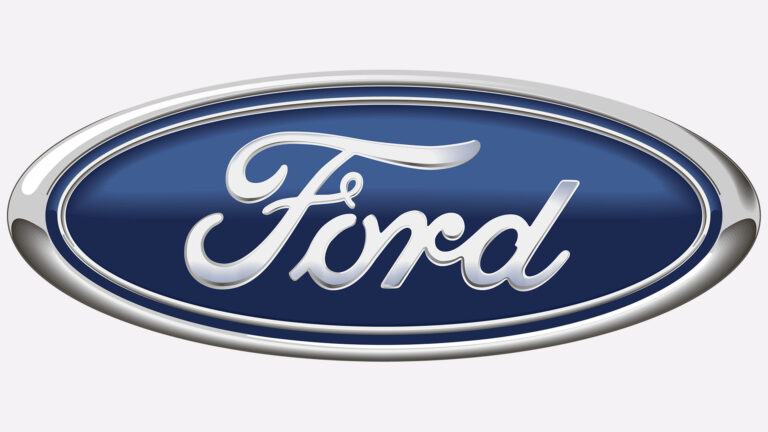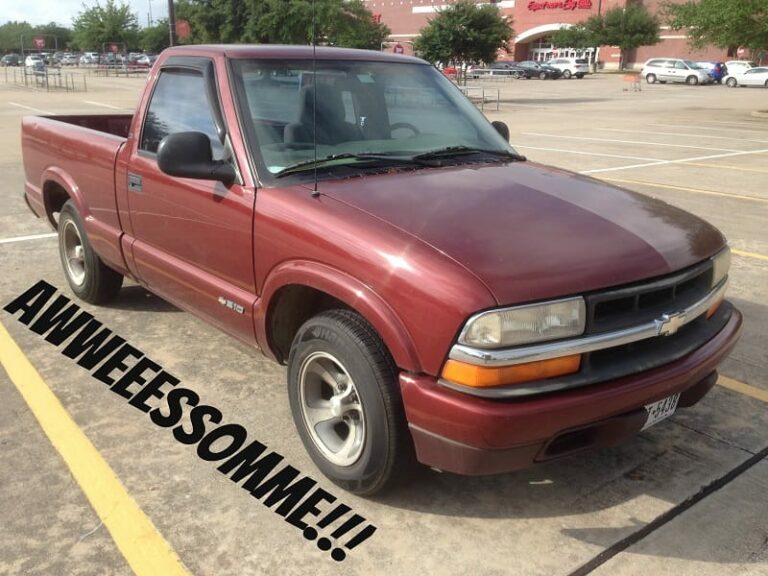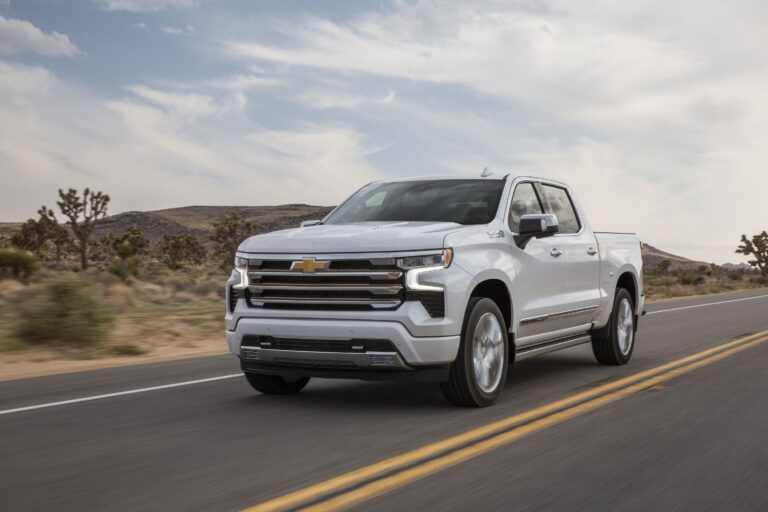Japanese Mini Truck For Sale By Owner: Your Ultimate Guide
Japanese Mini Truck For Sale By Owner: Your Ultimate Guide cars.truckstrend.com
Introduction: Discovering the Charm of Japanese Mini Trucks
In an era where practicality meets unique style, Japanese mini trucks, also known as Kei trucks, have carved out a significant niche. These compact, versatile, and incredibly reliable vehicles are the unsung heroes of farms, campuses, construction sites, and increasingly, suburban driveways. Originating from Japan’s Kei car regulations, these diminutive dynamos are designed for maximum utility within a minimal footprint, offering exceptional maneuverability, impressive payload capacity for their size, and surprising fuel efficiency.
Japanese Mini Truck For Sale By Owner: Your Ultimate Guide
The allure of owning a Japanese mini truck is undeniable, but navigating the market can be complex. While dealerships offer convenience, buying a "Japanese Mini Truck For Sale By Owner" (FSBO) presents a unique opportunity. This direct approach often unlocks better prices, allows for intimate knowledge of the vehicle’s history directly from its previous caretaker, and fosters a more personal transaction. This comprehensive guide will delve into everything you need to know about purchasing or selling a Japanese mini truck directly from or to an owner, offering practical advice, detailing critical considerations, and helping you navigate this increasingly popular market.
What Makes Japanese Mini Trucks So Appealing?
Japanese mini trucks are more than just small vehicles; they are engineering marvels designed for specific, often demanding, tasks. Their appeal stems from a combination of factors that make them exceptionally versatile and economical:
- Compact Size & Maneuverability: Measuring just under 11 feet long and 5 feet wide, they can navigate tight spaces, narrow trails, and crowded urban environments with ease, making them perfect for properties with limited access or for weaving through congested areas.
- Surprising Utility: Despite their small stature, most mini trucks boast a payload capacity of around 770 lbs (350 kg) and often feature foldable bedsides, dump beds, or even scissor lifts, transforming them into highly adaptable workhorses. Many are also equipped with selectable 4WD, making them incredibly capable off-road.
- Fuel Efficiency & Reliability: Powered by small, usually 660cc engines, these trucks are incredibly fuel-efficient, often achieving 35-50 MPG. Built to Japanese standards, they are renowned for their durability and low maintenance requirements, offering years of dependable service.
- Affordability: Compared to larger domestic trucks or ATVs with similar utility, mini trucks are significantly more affordable, both in initial purchase price and ongoing running costs.
- Unique Charm: Beyond their practicality, there’s an undeniable novelty and charm to these unique vehicles. They stand out, spark conversations, and offer a distinct alternative to conventional utility vehicles.

Common models include the Suzuki Carry, Daihatsu Hijet, Honda Acty, Subaru Sambar, and Mitsubishi Minicab, each with its own loyal following and slight variations in features and design.
Why Consider "For Sale By Owner" (FSBO)?
The FSBO market for Japanese mini trucks offers distinct advantages for both buyers and sellers, making it an attractive alternative to traditional dealership purchases.

For Buyers: Unlock Value and Transparency
- Potential Cost Savings: Cutting out the middleman (dealership) often means avoiding markups, leading to a lower purchase price.
- Direct Communication: You can speak directly with the previous owner, gaining valuable insights into the vehicle’s history, maintenance records, common quirks, and how it was used. This transparency is invaluable.
- Wider Selection: Many unique or well-maintained mini trucks may never make it to a dealership lot, being sold directly within communities or online forums.
- Flexibility in Negotiation: Negotiations can be more personal and flexible when dealing directly with an owner.

For Sellers: Maximize Profit and Control
- Higher Profit Margin: By avoiding dealer commissions and trade-in deductions, sellers can retain a larger portion of the sale price.
- Full Control: Sellers dictate the asking price, terms of sale, marketing strategy, and schedule for showings.
- Personal Connection: Many sellers enjoy the process of finding a good home for their vehicle and sharing their knowledge with a new enthusiast.
Navigating the FSBO Market: A Buyer’s Guide
Buying a Japanese mini truck FSBO requires diligence and research, but the rewards are significant.
1. Research is Key
Before you even start looking, educate yourself. Understand the different models (Suzuki Carry, Daihatsu Hijet, Honda Acty, Subaru Sambar, Mitsubishi Minicab), their common features, typical issues for certain years, and what parts availability looks like. Decide what features are essential for your needs (4WD, dump bed, AC, specific engine type).
2. Set Your Budget
Factor in not just the purchase price, but also potential import fees (if applicable), shipping costs, state registration and titling fees, potential repairs, and initial maintenance.
3. Finding FSBO Listings
- Online Marketplaces: Facebook Marketplace, Craigslist, eBay, and dedicated mini truck forums are excellent starting points. Use specific keywords like "Kei truck for sale," "mini truck for sale," or the specific model name.
- Local Ads & Word-of-Mouth: Check local classifieds, community boards, and spread the word among friends or local farm communities.
- Specialty Importers/Brokers (for insight): Even if buying FSBO, browsing reputable importers’ websites can give you an idea of market prices for different conditions.
4. Initial Contact and Information Gathering
Once you find a promising listing, reach out. Ask for:
- The VIN (Vehicle Identification Number) for background checks.
- Detailed photos from all angles, including the undercarriage and engine bay.
- Maintenance records and a list of any recent repairs.
- Reason for selling.
- Any known issues or quirks.
5. Inspection and Test Drive: The Critical Steps
This is where you prevent costly mistakes.
- Visual Inspection: Look for rust (especially common in colder climates or coastal areas, check frame, cab corners, bed mounts), fluid leaks, tire condition, uneven wear, and electrical issues. Check lights, wipers, horn, and AC/heater.
- Engine Bay: Look for cleanliness, signs of leaks, frayed belts, and general condition.
- Interior: Check seats, dashboard, controls, and floor for wear and tear.
- Test Drive:
- Start the engine cold if possible. Listen for unusual noises (knocks, squeals, rattles).
- Check for smooth acceleration, braking, and steering.
- Test all gears, including reverse and 4WD (if equipped).
- Ensure brakes are firm and don’t pull to one side.
- Listen for suspension noises over bumps.
- Professional Pre-Purchase Inspection (PPI): If you’re serious, especially for higher-priced vehicles, invest in a PPI by a trusted mechanic familiar with Japanese imports or small engines. It’s money well spent.
6. Negotiation
Be prepared to negotiate. Research comparable sales to understand the market value. Be polite but firm. Don’t be afraid to walk away if the price isn’t right or if significant issues are uncovered.
7. Paperwork and Legalities
This is arguably the most crucial part.
- Title Transfer: Ensure the seller has a clear title in their name. Verify the VIN on the title matches the vehicle.
- Bill of Sale: Create a detailed bill of sale that includes:
- Buyer’s and Seller’s full names and addresses.
- Date of sale.
- Vehicle make, model, year, VIN, and mileage.
- Purchase price.
- A statement that the vehicle is sold "as-is" (unless otherwise agreed).
- Signatures of both buyer and seller.
- State-Specific Registration: This is where Japanese mini trucks get complicated. Laws vary drastically by state. Some states allow full road registration (e.g., Virginia, Kansas, North Carolina), some restrict them to off-road or agricultural use only (e.g., California, Pennsylvania), and some prohibit them entirely from public roads. Always check your state’s DMV/DOT regulations BEFORE purchasing. You may need to title it as an "off-road vehicle" or "farm vehicle" depending on your intended use and local laws.
Selling Your Japanese Mini Truck FSBO: A Seller’s Guide
Selling your mini truck directly can be rewarding and profitable if done correctly.
1. Prepare Your Truck for Sale
- Clean Thoroughly: A clean truck makes a strong first impression. Detail the interior and exterior, clean the engine bay, and wash the undercarriage.
- Address Minor Issues: Fix any small, inexpensive problems (e.g., burnt-out bulbs, small fluid leaks) that could deter buyers or lower your asking price significantly.
- Gather Documentation: Have all service records, maintenance receipts, and the clear title ready.
2. Determine Your Price
Research what similar models, years, and conditions are selling for in your area and online. Be realistic. Consider the truck’s condition, mileage, features (4WD, AC, dump bed), and any modifications. Price it competitively but leave room for negotiation.
3. Create a Compelling Listing
Your listing is your storefront.
- High-Quality Photos: Take many clear, well-lit photos from all angles (exterior, interior, engine bay, bed, undercarriage). Highlight unique features and any minor imperfections.
- Detailed Description: Include:
- Make, model, year, mileage.
- Key features (4WD, AC, dump, etc.).
- Condition (be honest about any wear or damage).
- Recent maintenance or upgrades.
- Reason for selling.
- Your contact information and preferred communication method.
- Crucially, mention its legal status for road use in your state, or lack thereof, to set clear expectations.
4. Marketing Your Truck
- Online Marketplaces: Facebook Marketplace, Craigslist, eBay Motors, and local classifieds are effective.
- Specialty Forums/Groups: Post in Japanese mini truck enthusiast groups.
- Local Advertising: Place flyers at feed stores, farm supply shops, or community centers.
5. Handling Inquiries and Showings
- Be Responsive: Answer questions promptly and honestly.
- Safety First: When showing the truck, meet in a public place if possible, or have someone with you. Don’t share your home address until you feel comfortable.
- Test Drives: Accompany the buyer on the test drive. Ask for proof of a valid driver’s license and insurance.
6. Negotiation and Closing the Deal
- Be Prepared: Know your lowest acceptable price.
- Formalize the Sale: Use a written bill of sale. Ensure both parties sign it.
- Title Transfer: Sign the title over to the buyer as per your state’s requirements. Keep a copy of all signed documents for your records.
Important Considerations for Both Buyers and Sellers
Legality and Registration
This cannot be stressed enough: the legality of driving a Japanese mini truck on public roads varies widely by state in the U.S. and by country globally. Some states categorize them as "off-road vehicles" (like ATVs), "utility vehicles," or "farm equipment," restricting their use to private property. Others allow them to be fully registered and driven on public roads, often with specific requirements (e.g., speed limits, safety equipment upgrades). Always verify your local laws before buying or selling. Misunderstanding these regulations can lead to fines, impoundment, or an unusable vehicle.
Parts Availability
While most common wear-and-tear parts are available through online importers or specialty shops, some specific or older model parts might require direct import from Japan, which can take time and cost more.
Insurance
Insuring a mini truck can be tricky. Some standard auto insurance companies may not cover them for on-road use if they are not fully road-legal or if they are considered "gray market" imports. You might need to look into specialty insurers or off-road vehicle policies.
Shipping/Transportation
If buying or selling across state lines, factor in the cost and logistics of transporting the truck. Professional vehicle transport services are an option, or you might need to arrange pickup with a trailer.
Avoiding Scams
Be vigilant against common scams:
- For Buyers: "Too good to be true" prices, sellers demanding payment before seeing the vehicle, refusal to provide VIN or allow inspection.
- For Sellers: Buyers offering more than the asking price (and asking for the difference back), fake cashier’s checks, requests for personal financial information. Always verify funds before releasing the vehicle or title.
Benefits and Challenges of FSBO Transactions
| Aspect | Benefits (FSBO) | Challenges (FSBO) |
|---|---|---|
| Cost | Lower prices for buyers, higher profit for sellers. | No dealer financing options for buyers. |
| Control | Buyers get direct history, sellers control the process. | Sellers handle all marketing and paperwork. |
| Knowledge | Direct interaction provides deep vehicle insights. | Buyers lack dealer warranty/support; sellers must be knowledgeable. |
| Process | Potentially quicker and more flexible. | Requires more legwork and due diligence from both parties. |
| Legality | Greater awareness of specific vehicle use cases. | Both parties must independently verify complex registration laws. |
| Risk | Reduced risk of dealer markups. | Higher risk of scams or unforeseen mechanical issues without professional oversight. |
Practical Advice and Actionable Insights
- Verify, Verify, Verify: Always verify the VIN on the title against the vehicle.
- Get it Inspected: A pre-purchase inspection by a third-party mechanic is cheap insurance.
- Know Your Laws: Before you even start looking, confirm your state’s specific regulations regarding mini truck registration and use.
- Don’t Rush: Take your time. There are plenty of mini trucks out there.
- Document Everything: Use a clear bill of sale and keep copies of all paperwork.
- Cash or Bank Transfer: For payment, cash (for smaller amounts) or a direct bank transfer are the safest options. Avoid personal checks or cashier’s checks unless verified by your bank.
Japanese Mini Truck Estimated Price Table (For Sale By Owner – USD)
Prices for Japanese mini trucks can vary significantly based on year, condition, mileage, features (4WD, AC, dump bed), and regional demand. This table provides a general estimate for models commonly found in the FSBO market.
| Model | Typical Year Range | Condition (General) | Estimated Price Range (USD) | Key Features/Notes |
|---|---|---|---|---|
| Suzuki Carry | 1990s – 2000s | Fair | $3,000 – $5,500 | Very common, robust, often 4WD, versatile. |
| Good | $5,500 – $8,000 | Well-maintained, minor cosmetic flaws, good running condition. | ||
| Excellent | $8,000 – $12,000+ | Low mileage, pristine condition, rare features, recent extensive service. | ||
| Daihatsu Hijet | 1990s – 2000s | Fair | $3,000 – $5,500 | Popular, known for reliability, often comes with AC, P/S. |
| Good | $5,500 – $8,000 | Minor issues, well-maintained, good interior. | ||
| Excellent | $8,000 – $12,000+ | Exceptional condition, possibly dump bed or unique modifications, low mileage. | ||
| Honda Acty | 1990s – 2000s | Fair | $3,500 – $6,000 | Mid-engine design (under rear bed), good weight distribution, comfortable ride. |
| Good | $6,000 – $8,500 | Reliable, often with AC, good for light hauling. | ||
| Excellent | $8,500 – $13,000+ | Very clean, excellent mechanicals, sought-after specific models (e.g., Attack, Street). | ||
| Subaru Sambar | 1990s – 2000s | Fair | $3,500 – $6,000 | Rear-engine, independent suspension, often smoother ride, unique boxer engine sound. |
| Good | $6,000 – $8,500 | Good overall condition, reliable performers. | ||
| Excellent | $8,500 – $13,000+ | Pristine, may include supercharged models or rare configurations. | ||
| Mitsubishi Minicab | 1990s – 2000s | Fair | $3,000 – $5,500 | Solid, dependable workhorse, good parts availability. |
| Good | $5,500 – $8,000 | Well-cared-for, ready for work or recreation. | ||
| Excellent | $8,000 – $12,000+ | Top-tier condition, low hours/miles, possibly with rare features. |
Note: Prices are estimates and can fluctuate based on current market demand, location, specific features (e.g., dump bed, scissor lift, AC, power steering), and the overall condition and maintenance history of the individual vehicle. Always verify prices with recent local sales.
Frequently Asked Questions (FAQ) about Japanese Mini Trucks For Sale By Owner
Q1: Are Japanese mini trucks street legal in the U.S.?
A1: This is the most important question and the answer is complex: It varies by state. Some states allow full road registration, while others restrict them to off-road, agricultural, or limited-speed use. Some states do not allow them on public roads at all. Always check your specific state’s DMV or DOT regulations before purchasing.
Q2: What is the typical top speed of a Japanese mini truck?
A2: Most mini trucks, with their 660cc engines, have a top speed ranging from 55-70 mph (90-110 km/h). They are best suited for speeds under 55 mph and are not ideal for sustained highway driving.
Q3: How much can a mini truck haul?
A3: The typical payload capacity for most Japanese mini trucks is around 770 lbs (350 kg). However, many owners safely carry more for short distances or off-road use. Always consult the vehicle’s specifications.
Q4: Are parts for Japanese mini trucks easy to find?
A4: For common wear-and-tear items (filters, belts, spark plugs), parts are generally accessible through online importers and specialty shops. For more specific or obscure components, you might need to order directly from Japan, which can involve longer wait times and higher shipping costs.
Q5: What kind of fuel economy can I expect?
A5: Japanese mini trucks are very fuel-efficient due to their small engines. You can typically expect to get between 35-50 miles per gallon (MPG), depending on driving conditions, whether it’s 2WD or 4WD, and the vehicle’s maintenance.
Q6: What should I look for when inspecting a mini truck?
A6: Key areas to inspect include: rust on the frame, cab, and bed; fluid leaks (oil, coolant, brake fluid); the condition of tires, brakes, and suspension; unusual engine noises; functionality of all lights, gauges, and controls; and a clear title. A pre-purchase inspection by a mechanic is highly recommended.
Q7: Can I get insurance for a Japanese mini truck?
A7: Yes, but it might require contacting specialty insurance providers. Standard auto insurers may hesitate if the truck isn’t fully road-legal in your state or if it’s considered an import. For off-road use, it might be covered under an ATV or recreational vehicle policy.
Q8: Are mini trucks good for farm use?
A8: Absolutely. Their compact size, 4WD capabilities, and versatility (with dump beds or flatbeds) make them excellent for farm work, navigating fields, hauling feed, tools, and small livestock, and generally replacing larger, less efficient vehicles or ATVs.
Conclusion: The Rewarding Journey of Mini Truck Ownership
The world of Japanese mini trucks offers a unique blend of utility, charm, and surprising capability. Opting for a "For Sale By Owner" transaction can be a highly rewarding experience, potentially leading to significant savings and a deeper understanding of your vehicle’s history. However, it demands a proactive approach: thorough research, meticulous inspection, and a complete understanding of the legal landscape in your area.
Whether you’re a buyer seeking an economical workhorse or a seller looking to pass on your beloved Kei truck, diligence and transparency are your best allies. By embracing the process, navigating the specific considerations, and leveraging the practical advice outlined in this guide, you can successfully embark on your Japanese mini truck journey, enjoying the many benefits these incredible little vehicles have to offer.





